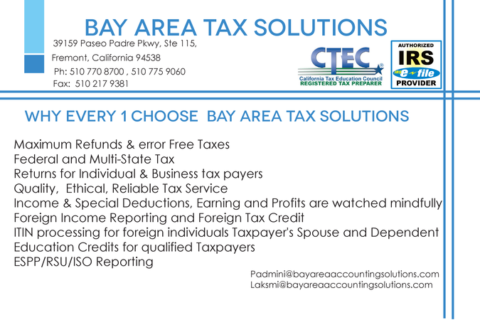
Bookkeeping involves the recording and maintaining financial transactions. It is an integral aspect of accounting. It allows businesses to plan for their future, track payments to suppliers and manage cash flow. This tool is essential for small business owners who want to analyze their business' performance and set goals. This article discusses the importance of bookkeeping for small businesses. Here are some tips for making your small business's bookskeeping system efficient.
Timely payment of bills
There are many methods to ensure that you pay your bills on time. Automate your bill payments. Automated programs will notify you when it's past due to pay your bill. Another way to organize your bills is to do so by due date. You can arrange your bills by due date if you pay your bills weekly. A system that automates the sorting of bills and runs payables reports can be used.
You will have a better reputation and cash flow. Paying your bills on schedule will also help you build a good name for yourself. Your business's track record will make it easier to secure funding in the long-term. It will also make it easier to negotiate favorable repayment terms for any future business transactions. It will also help to build a positive reputation for your company, which can lead to positive recommendations.

Organizing your bookkeeping
A bookkeeper must not only keep track and expense transactions but should also be proactive about updating and sending purchase orders. A well-organized area of work will save you time and prevent you from spending too much time searching for the right paper. Lastly, they should be diligent in reconciling their books every week. Keeping accurate financial records is essential to a successful business. Follow these tips to help you organize your small business' bookkeeping.
The first step towards organizing your bookkeeping organization is to determine the method of accounting that you will use. Cash accounting records transactions immediately after the money changes hands. When money hits your bank account, you can bill your customers and record your expenses. Many small businesses choose this method because it is easy to maintain and requires no additional work to keep track of payables or receivables. This method will also show you how much cash your business has.
You must ensure that all bank statements/invoices are correct.
A small business owner should examine their bank statements and invoices every so often. This will allow to track your spending habits as well as identify discrepancies. Checking your bank statements is also beneficial if you need to file taxes or apply for a loan. These documents can be useful when you need proof of business activity. Incorrect invoices and bank charges can make it difficult for you to prove that your business is operating.
The importance of accuracy in bookkeeping
A small business' accounting accuracy is crucial for compliance with the IRS. It also helps to make critical decisions regarding cash flow, credit flows, and material support. A business that does not keep accurate records of its transactions and income may lose the funds it requires to survive. An accurate record of transactions and income will help you determine if your business is on the right track. You should use double-entry bookkeeping to keep your records.

A good bookkeeping system will provide financial reports that are accurate. They will reveal how the business is performing, and whether or not it is profitable. Financial reports include budgets, balances, cash flow statements and receivables and payments aging reports. They also include profit-and loss statements. Your business will be able to identify growth opportunities and expand if you have accurate accounting reports. Inefficient business operations can be hindered by inaccurate financial records.
FAQ
What is the distinction between bookkeeping or accounting?
Accounting is the study of financial transactions. The recording of these transactions is called bookkeeping.
These are two related activities, but separate.
Accounting deals primarily using numbers, while bookskeeping deals primarily dealing with people.
To report on an organization's financial situation, bookkeepers will keep financial information.
They make sure all of the books balance by adjusting entries in accounts payable, accounts receivable, payroll, etc.
Accountants analyze financial statements to determine whether they comply with generally accepted accounting principles (GAAP).
If not, they may recommend changes to GAAP.
For accountants to be able to analyze the data, bookkeepers must keep track of financial transactions.
What should I expect when hiring an accountant?
Ask questions about their experience, qualifications, references, and other relevant information when hiring an accountant.
You want someone who has done this before and knows what he/she is doing.
Ask them if you could benefit from their special skills and knowledge.
Make sure that they are well-respected in the local community.
How Do I Know If My Company Needs An Accountant?
Many companies hire accountants when they reach certain size levels. One example is a company that has annual sales of $10 million or more.
However, not all companies need accountants. These include small companies, sole proprietorships as well partnerships and corporations.
The size of a company doesn't count. The only thing that matters is whether the company uses accounting systems.
If it does then the company requires an accountant. Otherwise, it doesn't.
What is an auditor?
An audit is a review or examination of financial statements. To ensure everything is correct, an auditor reviews the company's financial statements.
Auditors look for discrepancies between what was reported and what actually happened.
They also verify that the financial statements of the company are correct.
What does an accountant do, and why is it so important?
An accountant keeps track of all the money you earn and spend. They also keep track of the tax you pay and any deductions.
An accountant will help you manage your finances, keeping track of both your incomes as well as your expenses.
They prepare financial reports for individuals and businesses.
Accounting professionals are required because they need to be able to understand all aspects of the numbers.
A professional accountant can also help with taxes, so that people pay as little tax as they possibly can.
Statistics
- Employment of accountants and auditors is projected to grow four percent through 2029, according to the BLS—a rate of growth that is about average for all occupations nationwide.1 (rasmussen.edu)
- The U.S. Bureau of Labor Statistics (BLS) projects an additional 96,000 positions for accountants and auditors between 2020 and 2030, representing job growth of 7%. (onlinemasters.ohio.edu)
- "Durham Technical Community College reported that the most difficult part of their job was not maintaining financial records, which accounted for 50 percent of their time. (kpmgspark.com)
- BooksTime makes sure your numbers are 100% accurate (bookstime.com)
- a little over 40% of accountants have earned a bachelor's degree. (yourfreecareertest.com)
External Links
How To
How to bookkeeping
There are many kinds of accounting software. There are many types of accounting software available today. Some are free while others cost money. However, they all offer basic features like invoicing and billing, inventory management as well as payroll processing, point of sale systems and financial reporting. The following list provides a brief description of some of the most common types of accounting packages.
Free Accounting Software: Free accounting software is usually offered for personal use only. Although it may not have all the functionality you need (e.g., you can't create your own reports), it is easy to use. A lot of free programs can be used to download data directly to spreadsheets. This makes them very useful for anyone who wants to do their own analysis.
Paid accounting software: Paid accounts can be used by businesses with multiple employees. They typically include powerful tools for managing employee records, tracking sales and expenses, generating reports, and automating processes. Most paid programs require at least one year's subscription fee, although there are several companies offering subscriptions that last less than six months.
Cloud Accounting Software: Cloud accounting software allows you to access your files anywhere online, using mobile devices such as smartphones and tablets. This program is becoming more popular as it can save you space, reduce clutter, makes remote work much easier, and allows you to access your files from anywhere online. There is no need to install any additional software. You only need an internet connection and a device that can access cloud storage services.
Desktop Accounting Software: Desktop Accounting Software works on your computer, just like cloud accounting. Desktop software works in the same way as cloud software. It allows you to access files from any location, including via mobile devices. However, unlike cloud software, you must install the software on your computer before you can use it.
Mobile Accounting Software: This mobile accounting software was specifically developed to work on tablets and smartphones. These programs let you manage your finances while on the go. These programs are typically less functional than full-fledged desktop software, but they can still be useful for people who travel frequently or need to run errands.
Online Accounting Software - Online accounting software was created primarily to serve small businesses. It provides all of the same features as a traditional desktop program but adds a few extras. One advantage of online software is that it requires no installation; simply log onto the site and start using the program. You'll also save money by not having to pay for local office costs.